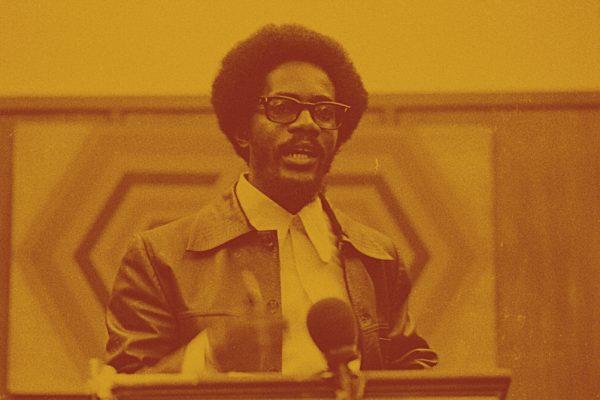For such a smart guy, New York Times “Upshot” Editor David Leonhardt made a surprising misstep in the July 15th issue, writing, “When the federal government is good, it’s very, very good. When it’s bad (or at least deeply inefficient), it’s the norm.” One can understand how this misstep—the snarky comment about “the norm”—happened. Leonhardt was focusing on special, targeted initiatives for the poor, many of which fail. But he missed the forest for the trees—or the government for the programs.
Americans commonly do not notice the successful operation of government, including the federal level; they, too, snarkily diss government. They do not notice the success because, like air, is all around them and taken for granted. To say government is generally successful is, of course, not to say government operations are optimal. We should strive for A-grade performance, not settle for B grades. Moreover, there is evidence to suggest that attaining A grades for the government would call for more of it.
The Norm
The first task of government is to protect its citizens. For two centuries, no foreign power has taken any American land and the only war in the “homeland” was the self-inflicted Civil War. (That is, in part, why 9/11 was such a shock—a moment of actual devastation on our shores.) We have had the same government for about eight generations, a long stretch historically. The great majority of our citizens are, day in and day out, safe in their person and property—a level of safety that is historically unusual. That American government provides extensive physical, legal, and economic security is a major reason that so many non-westerners try to invest their resources and themselves here. There are plenty enough examples, south of us, of nations where “ bad (or at least deeply inefficient)” government is indeed the norm.
Increasingly, the federal government has secured Americans’ well-being through mega-programs such as Social Security, Medicare, regulatory oversight, and insurance programs. (See this earlier post, for example.) And the mega-programs work: People get signed up, their checks come on time, hospitals provide care, and so on. So routine, so much “the norm,” so taken for granted.
Government is also tasked with assuring liberty. The system of law and order and courts, for all the episodic failures and problems, works well enough that Americans count on its protection. Corruption of the system certainly occurs, much too often, but stands out precisely because it is not the norm.
The major responsibilities of the federal government—defense; law enforcement and civil courts; Social Security, Medicare, Medicaid, food stamps, and other welfare support; highway, port, and airport building and management; scientific and health research; higher education; boosting home ownership; sanitation and water supply; safety regulation; communications infrastructure (including the Internet) and regulation; agricultural support of various kinds; subsidized insurance of various kinds (crop, bank deposit, flood, housing, etc.); national parks and recreation; managing cycles of the economy; and so on—all suffer from episodic failures and some “waste, fraud, and abuse.” But they work well enough that the great majority of Americans—excepting, notably, some living in deep poverty pockets—leave home each day taking all that for granted. (The books, To Promote the General Welfare and When All Else Fails provide good historical overviews the how government actions built and maintain our taken-for-granteds.)
Upping the Norm
Moreover, the international evidence on the role of government suggests that improving the U.S. government’s normal performance would generally involve expanding its role, not shrinking it. Comparing how well citizens in different countries are doing on basic assessments of well-being—health, education, security—generally show that Americans lag well behind citizens of other affluent western nations, shockingly so in some cases, nations that commonly have larger government sectors than we do. (See, for example, here and here.).
In a pair of overlapping papers (here and here) Patrick Flavin, Alexander Pacek, and Benjamin Radcliff review the research showing (usually) that residents of nations with larger governments do better than those of nations with smaller governments. The authors then present some research of their own on the connection between government size and survey respondents’ expressions of life satisfaction. All else being equal, people living in nations with larger governments express more contentment—whether one measures size by the amount of money governments tax and spend or by how much governments regulate the market. Correlation, of course, does not prove causation (maybe contented citizens go on to support big government), but certainly suggests that Americans would—eventually—respond well to larger government, just as they eventually responded well to the mega-programs I listed earlier.
In any event, had Leonhardt set aside the easy snipe about the governmental norm and reflected upon it more fully, his story about how we might better measure the success of specially-targeted programs would have had a more appropriate context.








